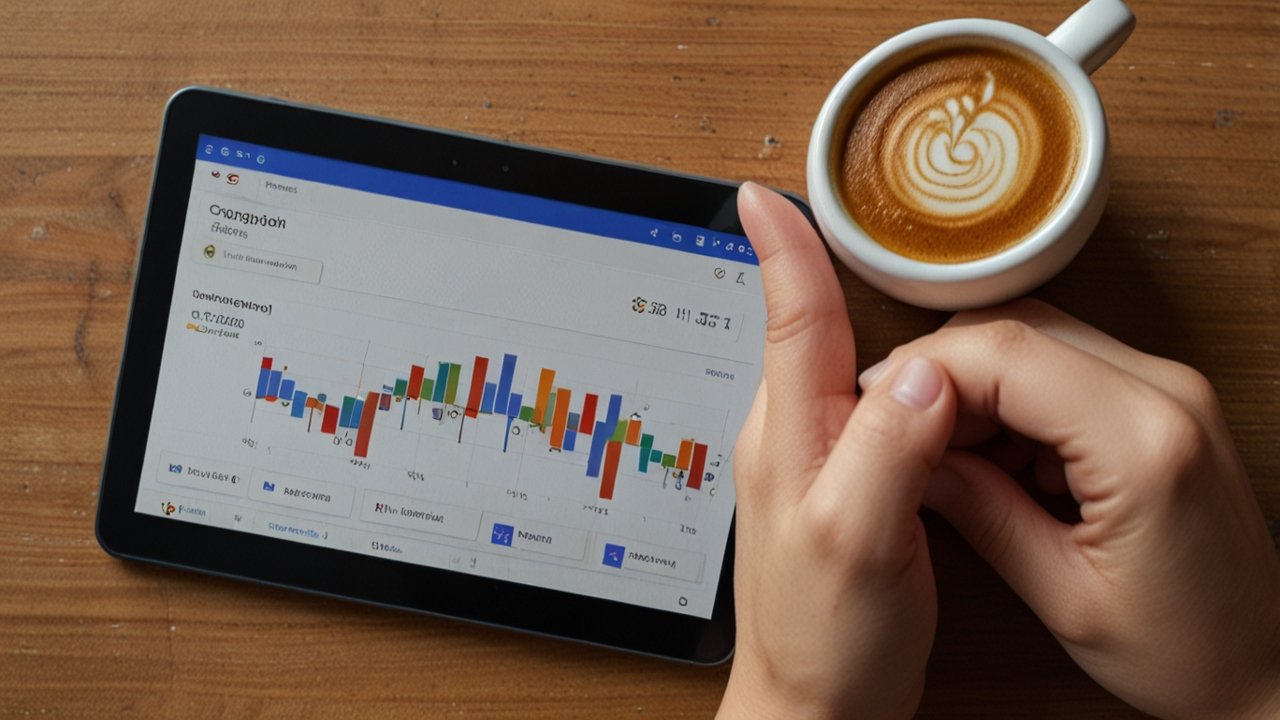Google Travel 7 Essential Features
Google Travel has revolutionized the way we plan our journeys by integrating cutting‐edge technology and deep travel insights. The platform has evolved from basic hotel search and flight information to a comprehensive, AI-powered travel planning solution. Readers of all ages, from teens to senior globetrotters, can now enjoy a personalized travel experience.
With a history steeped in innovation and technological prowess, Google has continually integrated travel functionalities into its core services. Today, this impressive evolution delivers smart itineraries and seamless navigation across multiple devices. For more information, check out Trending Topics.
📑 Table of Contents
- Introduction to Google Travel
- Evolution and History of Google Travel
- How Trip Planning Platform Enhances Google Travel
- Vacation Search Engine Systems and Their Applications
- Real-World Case Studies of Google Travel
- Flight and Hotel Finder in Modern Google Travel Solutions
- Future Trends: Travel Booking Service and Beyond
- Intriguing Perspectives on Google Travel Insights
- FAQ
- Conclusion
Whether you’re planning a weekend escape or an international expedition, Google Travel ensures that every detail – from flight prices to local attractions – is just a few clicks away. Its intuitive design and real-time information make it a must-have for modern explorers.
Introduction to Google Travel
Overview of Google Travel’s Impact Artificial Intelligence
Google Travel has redefined online travel experiences by merging smart algorithms with user-friendly interfaces. The platform uses advanced data analytics to present intelligent travel guidance, ensuring that users can quickly find relevant information. It stands as an exceptional example of digital innovation in the travel field.
By incorporating features like real-time price tracking and automated itinerary generation, it offers practical benefits to both seasoned travelers and novices. This unmatched combination of technology and seamless user experience has driven adoption globally. Have you ever experienced a breakthrough travel planning tool that completely changed your view on journeys?
Innovative Features at a Glance
The initial phase of Google Travel focused on the basic necessities of flight and hotel search, yet its evolution has been impressive. Today, the platform leverages sophisticated machine learning models, offering automated itineraries that dynamically match user preferences. It provides an integrated approach, making travel planning an interactive process.
Features such as price drop alerts and screenshot integrations enhance the overall planning process. This comprehensive suite of tools makes travel planning simpler and more engaging than ever before. Can you imagine a travel tool that learns from your past trips and adapts to your changing needs?
Evolution and History of Google Travel
Key Historical Milestones in Google Travel
Google’s journey in travel started in the early 2010s with the acquisition of ITA Software, a leader in flight information, and the launch of Hotel Finder. This strategic move paved the way for Google to challenge established online travel agencies. Early efforts laid the groundwork for what would become a total transformation in travel search capabilities.
By 2019, Google had advanced to offering a centralized travel hub and expanded features for flight and hotel bookings. In a fiercely competitive market, the innovation driven by data analytics and search integration marked a turning point in the industry. Have you noticed how travel services are continuously evolving?
Strategic Acquisitions and Market Evolution Innovative Solutions
Over the years, Google adopted a forward-thinking approach, incorporating advanced AI techniques and aligning various services like Search, Maps, and Assistant. The company’s strategic acquisitions, including ITA Software, enabled it to weave travel services directly into its ecosystem. This historic transformation also means a comprehensive list of services integrated under one reliable platform.
Market growth was evident as Google combined its expertise in technology with real-time analytics, enhancing service delivery. The growth of the online travel market, which reached $480.3 billion in 2019, was powered by innovation that continues to drive consumer trends. What do you think has been the most significant turning point in the travel industry?
How Trip Planning Platform Enhances Google Travel
AI-Driven Itinerary Tools Digital Transformation
Google Travel integrates robust AI-powered itinerary generation tools that facilitate day-by-day planning for diverse travel needs. When users request a specific itinerary—say, focusing on natural attractions in Costa Rica—the platform instantly produces detailed plans with linked maps and activity suggestions. The system leverages natural language processing (NLP) to translate user queries into structured itineraries.
This smart feature not only simplifies the planning process but also saves valuable time for travelers. Its underlying machine learning models analyze historical data to deliver accurate recommendations. What would your ideal travel itinerary include when planning a unique getaway?
Seamless Integration with Other Services
Google’s travel solution is deeply connected with core products like Search, Maps, Docs, Gmail, and the new Gemini interface. This constellational integration enables cross-platform synchronization, ensuring that your travel details are readily accessible on the go. Overall, it creates a unified ecosystem that responds swiftly to user input.
Integration is enhanced through real-time updates, such as flight delay predictions and price tracking, giving travelers a competitive edge when booking. The collaborative nature of these systems significantly improves user experience. Have you experienced the convenience of all your travel apps working together effortlessly?
Vacation Search Engine Systems and Their Applications
Dynamic Search Results Future Technologies
The evolution of search engine systems in the travel domain is reshaping how vacation options are presented to users. Enhanced by billions of data points, these systems provide dynamically updated search results that are tailored to individual preferences. They harness real-time, predictive analytics to factor in seasonal trends and pricing history.
As a result, travelers can view the most appropriate flight times and hotel deals without sifting through outdated information. This dynamic search capability is pivotal to the user-centric design of modern travel tools. Could dynamic results change the way you plan your vacations?
User-Centric Design Benefits
Modern vacation search engines focus on achieving a balance between comprehensive data and intuitive design. They empower users with personalized options and recommendations in a visually appealing format. Such systems enhance the planning process by merging robust search technology with ease of use.
The elegant combination of design and functionality drives higher user engagement, ensuring that customers feel confident about their selections. These innovations contribute to an overall better travel experience that fits modern digital lifestyles. Do you value user-friendly design as much as detailed analytics when choosing a travel tool?
Real-World Case Studies of Google Travel
Success Stories from the Industry Digital Living
Google Travel’s disruptive entry into the travel market has forced traditional OTAs like Expedia and Booking Holdings to pivot their strategies. For instance, Expedia experienced a surge in paid marketing, gaining an additional one million visits in March 2021 compared to previous years. This case clearly demonstrates the powerful impact of Google’s innovative travel strategies.
The success extends beyond statistics; it has reshaped consumer expectations by emphasizing real-time, AI-powered planning solutions. Notably, a PYMNTS Intelligence report from 2025 revealed that 52% of travelers now demand AI assistance in trip planning. Have you witnessed a significant change in your travel planning habits due to technology?
Market Disruption and Consumer Trends
Google Travel Insights have become vital for tourism boards and travel agencies worldwide. Agencies now employ these tools to analyze consumer behavior, forecast trends, and calibrate marketing strategies. Online sales in the travel sector are expected to account for 74% of total tourism sales by 2027, a testament to the platform’s market influence.
Additionally, various regional influences have been observed: In the Americas, early adoption of AI features has led to enhanced convenience, while European agencies utilize data carefully to comply with local regulations. This integration is a clear reflection of the growing trend towards data-driven travel planning. What do you think is the next big trend in travel analytics?
Comprehensive Comparison of Case Studies
| Example | Inspiration | Application/Impact | Region |
|---|---|---|---|
| Expedia’s Traffic Surge | Real-time analytics | Increased visits by 1M+ in March 2021 | Americas |
| Booking Holdings Adjustment | Competitive integration | Shifted marketing strategies | Global |
| Local Agency Analytics | Data-driven insights | Optimized campaigns via Google Travel Insights | Europe |
| Tourism Board Campaigns | Regional trends | Enhanced inbound tourist attraction | Australia |
| Adoption of AI Features | Innovative tool use | 52% traveler adoption rate | Global |
For more information on innovative case studies, you can visit detailed study on travel planning. Have you ever reflected on how data trends influence marketing strategies in your travel plans?
Flight and Hotel Finder in Modern Google Travel Solutions
Advanced Price Prediction Models CNET Overview
An essential element of the modern travel experience is advanced price prediction, a feature that is now integrated into Google Travel. Machine learning algorithms analyze historical data to forecast the best flight and hotel booking times. These models are built with predictive accuracy in mind.
This approach not only provides alerts for optimal pricing but also helps prevent the stress of last-minute deals. Users receive timely notifications about flight delays, price drops, and tailored suggestions based on previous searches. Have you ever felt relieved after receiving a timely price alert?
Personalization and Data Analytics
Personalized recommendations stem from a complex interplay between data analytics and individual consumer behavior. Google Travel leverages robust analytics to deliver suggestions that resonate with users’ interests and past itineraries. By examining historical trends, the system produces personally tailored travel options.
This level of personalization transforms the traditional search experience into a highly interactive journey. Users receive curated lists of attractions and accommodations that feel especially aligned with their travel style. Can you recall a time when tailored recommendations truly inspired your next travel decision?
Future Trends: Travel Booking Service and Beyond
Emerging AI Technologies Travel Weekly Report
Looking forward, emerging AI technologies are set to further disrupt the travel industry. Innovations including generative AI through platforms like Gemini are expected to make travel planning even more interactive and conversational. Users are anticipated to enjoy more immersive and intuitive experiences.
This evolution could lead to even more comprehensive travel planning, where personal preferences drive the entire planning process. The integration of AI into virtual assistants is expected to revolutionize customer service within the travel industry. What future AI technology are you most excited to see integrated into your travel planning?
Anticipated Global Expansion
The future of travel planning promises even greater global reach. Google is preparing to expand its advanced features internationally, incorporating multilingual support and adaptation to local market conditions. This global expansion will address diverse user needs across various regions.
As the travel industry continues to embrace data-driven solutions, international travelers can expect fully integrated, seamless travel experiences worldwide. The overall trend points toward increasingly personalized and widely accessible travel solutions. How do you foresee global expansion changing your travel planning experience in the coming years?
Intriguing Perspectives on Google Travel Insights
This section offers a refreshing look at how modern digital services redefine everyday activities. A series of innovative approaches have transformed the way we navigate, interact, and plan our daily routines. In recent years, rapid technological advancements have influenced personal habits and optimized decision-making processes.
One notable factor is the shift towards real-time data integration that empowers individuals to make informed decisions with minimal delay. The convenience of accessing instantaneous updates has led to a surge in user engagement. Experiences now are characterized by adaptability and stringent personalization that cater to unique preferences.
Moreover, the integration of sophisticated technologies has fostered collaboration among traditionally isolated systems. This synergy has opened avenues for creating more intuitive interfaces and fostering a community-oriented atmosphere where sharing insights is promoted. Observers cite this trend as a fundamental turning point in how technology facilitates daily interactions.
In addition to enhanced efficiency, the focus on customer-centric enhancements has driven the development of systems that anticipate user needs and create proactive measures for optimal outcomes. This progress is recognized in evolving user interfaces that place emphasis on simplicity and rapid navigation, profoundly impacting user satisfaction.
Furthermore, industry experts highlight the importance of continuous improvement and evaluation that creates a feedback-loop to track performance and implement necessary adjustments. This ongoing process reinforces the reliability of services and encourages a future-oriented approach among users. Ultimately, the adoption of these novel techniques has not only improved overall satisfaction but has also paved the way for further research and exploration in the domain of everyday digital conveniences.
The insights provided here underscore the potential for future transformation, urging all users to remain active participants in this unfolding journey. Could this new perspective be the catalyst for entirely reimagining future digital interactions?
FAQ
What is Google Travel?
Google Travel is an integrated online service that combines flight and hotel search, real-time price tracking, and AI-powered itinerary generation into one platform. It leverages advanced algorithms and data analytics for personalized travel planning.
How has Google Travel evolved over time?
Initially focused on basic search functions, Google Travel evolved rapidly after acquiring ITA Software. The expansion into a centralized hub with features such as automated itinerary generation and live price predictions marks its evolution.
What key technologies power Google Travel?
Google Travel utilizes machine learning, natural language processing, and real-time analytics alongside integration with other Google services like Maps and Search. These technologies ensure personalized and reliable travel insights.
How does Google Travel enhance the booking process?
The platform offers advanced features like price prediction models and personalized recommendations, streamlining the booking process for flights and hotels. It notifies users of price drops and integrates with various devices to provide a seamless experience.
What future developments can users expect?
Users can expect further global expansion with enhanced multilingual support, deeper integration with generative AI, and increasingly personalized travel services that adapt in real time to consumer needs.
Conclusion
Google Travel stands as a landmark innovation in the travel industry, blending high-tech features with user-centric design. The platform has not only transformed how we search and plan travel but has also set new standards for continuous innovation and global expansion.
Every feature—whether it is advanced price predictions, AI-driven itinerary generation, or seamless integration with Google’s suite of services—has redefined modern travel planning. Its evolution underscores the power of smart technology in making travel simpler and more intuitive for everyone.
We invite you to share your thoughts, experiences, and any innovative ideas you have encountered on your journeys. If you have any comments or need further information, please Contact us. What new travel feature would you like to see developed next?
For more information on breakthrough digital solutions, check out additional insights from TechCrunch and PYMNTS. We look forward to your contributions!




















Leave a Reply